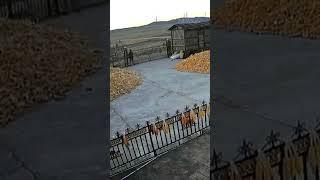Комментарии:

Is anyone somehow watching from Tristan Da Cunha?
Ответить
One of my earliest memories is of helping my Mum to put together an aid package for an unknown Tristonian, after the volcaic eruption of 1961. We did the same a couple of years later after the Skopje earthquake (now the capital of North Macedonia).
Ответить
i hate this guys fucking vocal fry
Ответить
I'm from Tasmania and all of those places names seemed pretty normal to me
Ответить
Un Mundo Inmenso MENTIONED (sorta)
Ответить
"St Helena" rhymes with "marina". Helena, Montana is pronounced the way you say it. Likewise, St Augustine in Florida sounds Spanish, whereas in English, Augustine generally rhymes with "bustin'" The NH of Portuguese is the Ñ of Spanish, the GN of French and Italian, and the NY of our "canyon". But we don't copy this in "da Cunha" and "piranha".

Why do you talk like that. 😂
Ответить
I think you may have made a mistake on American English speakers. There's more than 300 million speakers in the US alone on top of it being extremely prevalent internationally. Your number implies that 30 million plus Americans who don't speak American English and that nobody outside the US speaks it (or some mix of a higher number in the US not speaking it with some international)
Ответить
Isn't it pronounced KOON-yah..?
Ответить
Name Explain, before jumping to conclusions, I went to Wikipedia to make sure my info is correct. There, they give only 1 pronunciation, which is the original Portuguese form: COON-yah, via the 'nh' pairing. The same sound exists in Spanish (ñ), plus French and Italian (gn).
Ответить
No chance it takes 18 days to get there from Cape Town. Maybe there’s only a sailing every 18 days. Also, it’s not 17000 km.
Ответить
So which English dose that weird ending to every sentence belong to .
Ответить
glish
Ответить
Have you ever seen Tristan da Cunha's official website? It's a must read
Ответить
This video would have been much better with some clips of people from Tristan da Cunha speaking rather than that awful computer generated voice over.
Ответить
That addition of an H is also heard here in France among learners of English. This is because French doesn't have an H sound, so a lot of us wind up dropping the H's, like in southern England. But when we become aware of it, we may start to hypercorrect, i.e. be so careful to pronounce the H's that we end up putting them where they don't belong.
Similarly, we may sometimes pronounce S and Z sounds as "th", precisely because we so often do the opposite.

In regards to Tristan Da Cunha's English to quote the Simpsons Put it in H
Ответить
Talking about peculiar versions of englishhhhh. What's with the narrator drawing out the ends of sentences in that weird waaaayyyy. It's highly annoyinnngggg.
Ответить
It's kinda scary how close New Zealand is to Australia, RUN GIRL!!
Ответить
"Rarest," or most common English, it's all bizarrely understandable to anyone with an ear. German dialects, for example, used to be much more mutually incomprehensible than among British and American dialect speakers. The current fad of stupid Americans and condescending Brits "not understanding" the Scots and the Irish is just the same old imperial class shite. Nothing to do with linguistics.
Ответить
Surely Pitcairn English would be the rarest?
Ответить
Good video but it would be better if it wasn't 1,000 audio clips spliced together
Ответить
And then there is this man's English which is unique to himself.
Ответить
17 HUNDRED miles away, not thousand. Unless you're speaking an even more obscure dialect of English than the people of Tristan da Cunha do.
Ответить
What about New Guinea pidgin , for instance on the then Prince Charles ' I'm b'long missus queen'.
Ответить
I want to learn more about your unique dialect of English where you draw out the last syllable of a sentence to ridiculous effect.
Ответить
Why don't you do a video on your speech pattern. Wth is up with that??
Ответить
Where is the commentator from? He emphasises the last letter of the last word in a sentence, which I've not heard in England.
Ответить
great vid congrats
Ответить
It’s a bit like Jamaican English
Ответить
"Soggy Plain"
Nice

Interesting, but just a shame that you not pronouncing the island's name properly. Cunha sounds like coonya.
Ответить
Interesting you are talking about language types and you have a couple of traits yourself. One is the falling inflection at the end of sentences and ending somw words with "ah". A trait I have noticed in videos about some black people in America.
Ответить
I'm-uh more-uh interested-uh in-uh your-uh dialect-uh
Ответить
WHat weird dialect do you speak? You don't say Island, but "islanduh" for example.
Ответить
You missed Philippino English
Ответить
Rapa Nui is permanently inhabited and at over 2000 miles from the nearest inhabited land is more remote than Tristan da Cunha which is 1700 miles from Cape Town.
Ответить
Then there is AI English🤣😂
Ответить
Hinteresting! ☺
Ответить
Exsqueeze me wtf? Canadian English!
Ответить
Actually it is quite common in the Midlands for older folks to drop “H”s from sounded words and add them to words starting with vowels. Examples…….”Appy Heaster”,…the town of “Oninton” in “Heast Devon” etc.
Ответить
So, when taking about their capital, do they say Edinburgh of the 7 seas or sea?
Ответить
When does an accent become a dialect and a dialect become a language? English is English (at least historically) so when did it become ‘Aussie English’ for example?
Ответить
This person has an annoying infliction on the end of all their sentences. Blocked
Ответить
Soggy Plain
Ответить
So, as Latin evolved and developed into a family of languages, English is starting to develop its own family.
Ответить
‘No native population’ …what’s the definition of indigenous again? Oh yeah…Sounds like there IS a native population you just don’t want to call the spade a spade…probably because of your heavy bias against a certain group
Ответить









![PDFChatAnnotator [IUI 2024] PDFChatAnnotator [IUI 2024]](https://hdtube.cc/img/upload/b1lTNkRrbk5rbG4.jpg)
















